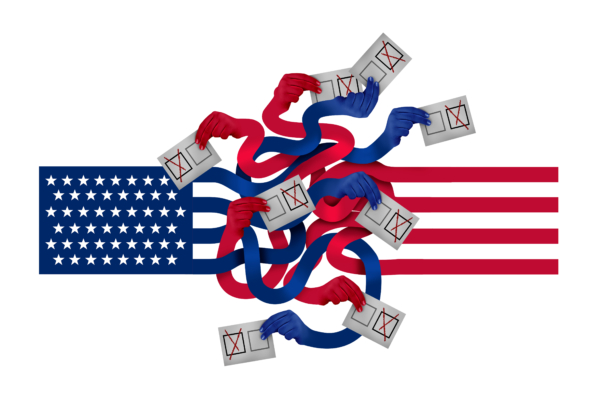States Leaving ERIC Threaten Voter Security, Give Weight to Misinformation Campaigns
ERIC is a non-profit created in 2012 by state election officials from seven states to help improve the accuracy of state voter rolls and register more eligible Americans to vote. ERIC does this by allowing states and governments across the country to securely share voter registration lists with each other and use this information to eliminate duplicate voters across states, remove dead voters from the rolls, find people who illegally vote twice, and register voters who move to new locations. In the November 2022 elections, 32 states plus Washington D.C. were members of ERIC.
North Carolina is expected to launch its membership to ERIC later this year — a decision that was supported by both political parties in the state as well as the State Board of Elections. The conservative-leaning John Locke Foundation issued a statement in support of North Carolina enrolling in ERIC, noting it is “not the province of any one ideological camp.”
There is reason to believe the recent decision by a few states to leave ERIC is the result of a sustained disinformation campaign from election-denier individuals and media organizations. This prompted ERIC’s Executive Director to set the record straight about ERIC, making clear that ERIC is run by its member states, funded by state membership dues, and allows member states to retain complete control over their voter rolls. ERIC also uses widely accepted security protocols for handling data in a secure manner, using a remote staff that cuts down on any costs of having a physical office.
“We follow widely accepted security protocols for handling the data we utilize to create the reports,” Hamlin wrote. “Our servers are housed in a managed, secure data center located here in the U.S. Secure remote access to the data center is limited to only employees who need it to perform their duties.”
ERIC has the added benefit of cutting costs for election administration by providing data sources the states otherwise could not purchase on their own, among other cost-saving measures. This is crucial for North Carolina, where the Director of the State Board of Elections has recently reported an increase in registered voters but a dramatic shortfall in staff and resources to help maintain those lists.
At base, the move by officials in Florida, Mississippi and West Virginia to leave ERIC appears politically-motivated and will almost certainly create less accurate voter rolls. A bipartisan group of election officials agrees, and have issued statements in support of ERIC. Importantly, states leaving ERIC will be unable to continue using its services to update their voter rolls, including losing the ability to remove duplicate voters across states, as there is no viable alternative available.
North Carolina’s enrollment in ERIC is a long time coming and one of the few steps advocates on both sides of the political spectrum agree on. It is crucial the state does not fall victim to the disinformation seeking to make our elections less inclusive and, ultimately, less secure.

